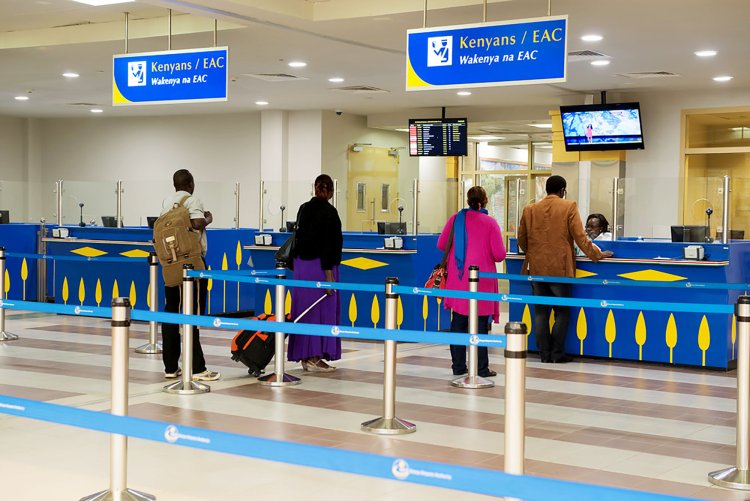KRA Dismisses Plan To Tax Kenyans' Personal Luggage At JKIA
KRA, while reiterating its commitment to continuous improvement, revealed that it is in the process of upgrading the use of technology to enhance non-intrusive inspection of baggage at all points of entry.

The Kenya Revenue Authority (KRA) has dismissed the confusion that stemmed from its multiple deleted statements that the agency was planning to tax personal luggage valued at Ksh75,425 (USD500) or more.
In a detailed explanation on Thursday, November 2, the taxman, while reiterating its commitment to continuous improvement, revealed that it is in the process of upgrading the use of technology to enhance non-intrusive inspection of baggage at all points of entry.
Part of this process is to ensure that prohibited and restricted goods are screened out for security purposes.
For passenger clearance at terminals, KRA clarified that all used personal items/effects are exempt from customs duty.

Kenya Revenue Authority (KRA) offices along Mombasa Road. /FILE
"As per the law affecting all East African Countries, goods of up to the value of USD 500 for each traveller are exempted from import tax, in so far as the baggage is accompanied and declared to the Customs Officer," stated KRA in part.
The agency went on to state that scanning of a traveller’s baggage is done to ensure correct declarations for purposes of taxation and to screen out prohibited and restricted goods for the safety of all Kenyans.
Items flagged out after the first line x-ray/non-intrusive scanning process will undergo a physical inspection by the Customs Officer.
Where imported goods are subject to customs duty, KRA noted that a passenger is required to self-declare the actual price.
"The duty to be paid (if any) shall be based on the actual purchase price as declared by the passenger/traveller," added KRA.
Nonetheless, all passengers are required to declare the specified items in the Passenger Declaration Form (F88), before arrival in Kenya & present it to a Customs official at the entry point. However, they have a right to query the assessed customs duty and seek an explanation from the Customs Officer.
"KRA is mandated to collect revenue on behalf of the Kenyan Government in line with Customs laws & other national & international laws regulating passenger movements. Customs duty is paid at appointed banks within terminals or mobile banking platforms using electronic payment slips," added the agency.
Beforehand, Kenyans took to X sharing harrowing tales of their encounters at JKIA with customs, triggered after one Maxwell Otieno took to X (formerly Twitter) to warn Kenyans flying into the country through JKIA about carrying electronics from abroad.
Kenyans also complained about the alleged poor handling of arrivals at JKIA, long queues and exploitation.







